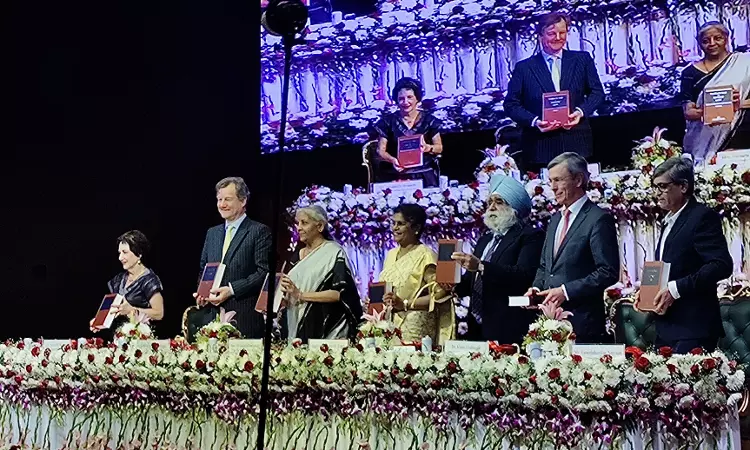Justice Prathiba M Singh's Book On Patent Law Launched By Union Finance Minister Nirmala Sitharaman
Nupur Thapliyal
10 March 2024 8:20 AM IST

Next Story
10 March 2024 8:20 AM IST
Delhi High Court judge, Justice Prathiba M Singh's book on Patent Law was launched on Saturday by Union Finance Minister Nirmala Sitharaman, along with other foreign dignitaries. The book, which has been published by Thomson Reuters, was launched at Bharat Mandapam, Pragati Maidan. The book launch event witnessed the presence of the following:- Union Finance Minister Niramla Sitharaman-...
